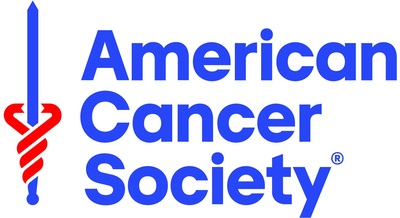Press Releases
ATLANTA, Nov. 16, 2020 /PRNewswire/ -- Tobacco use continues to be the leading cause of preventable death in the United States, accounting for about 30% of all cancer deaths. While fewer people are smoking cigarettes and smoking rates have drastically dropped in the U.S. during the past several decades, there are still an estimated 34.2 million people in the U.S. who smoke. For this year's 45th Great American Smokeout on Thursday, November 19, 2020, the American Cancer Society (ACS) is reminding people who smoke to use this as a day to make a plan to commit to a tobacco- and smoke-free life year-round, especially people who are at increased risk for severe illness from COVID-19.
"Based on what is known at this time, people who smoke might be at increased risk for complications from COVID-19, and we are concerned about worsening disparities of smoking-related illness and COVID-19 in high-risk populations," said Laura Makaroff, senior vice president, prevention and early detection, American Cancer Society. "There's never been a better time to quit smoking, and the sooner someone quits, the more they can reduce their chances of developing tobacco-related diseases."
The ACS has hosted the Great American Smokeout since 1976 as a public awareness event to encourage people to quit smoking. It is held annually on the third Thursday of November.
Smoking rates in the U.S. have declined from 42% in 1965 to 13.7% in 2018, but the gains are inconsistent, and some groups continue to smoke and smoke more heavily than others. Each year, more than 55% of the 34 million people who smoke in the U.S. try to quit. However, only about 1.2 million (7.4%) who try to quit succeed each year, in part because of lack of access to cessation resources and support. While quitting smoking can be difficult, people can increase their chances of success if they have a plan including nicotine replacement therapy or other FDA-approved medications and counseling.
Tobacco use is not just a health issue, and while disparities have narrowed, they persist in many populations based on education, socioeconomic status, race/ethnicity, LGBTQ community, and those with mental illness, in the military and in certain geographic areas. These populations tend to be those who experience inequities in multiple areas of their lives and can affect the choices a person makes, but more importantly can affect a person's opportunity to be as healthy as possible. Addressing these disparities will require engaging community members and cross-sector partners such as corporate partners, community-based organizations (e.g., faith-based organizations), community leaders, investors and funders, academic institutions, health systems, and government.
ACS is here to provide support to help people who smoke quit smoking for good. For more information, to connect to a free telephone quitline, or to access resources to help make a plan to quit, visit cancer.org.
SOURCE American Cancer Society

